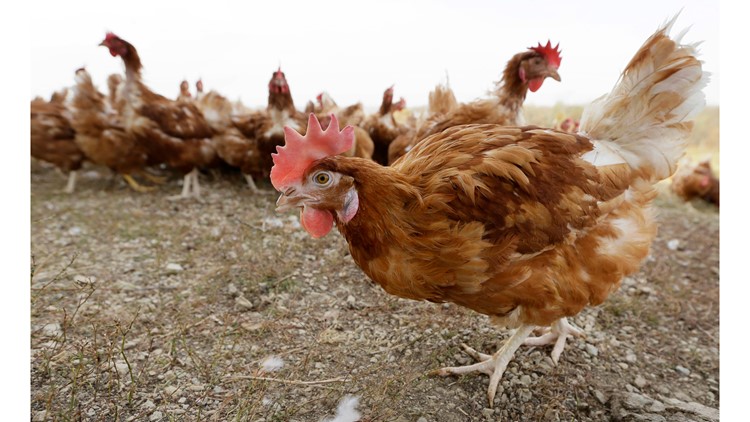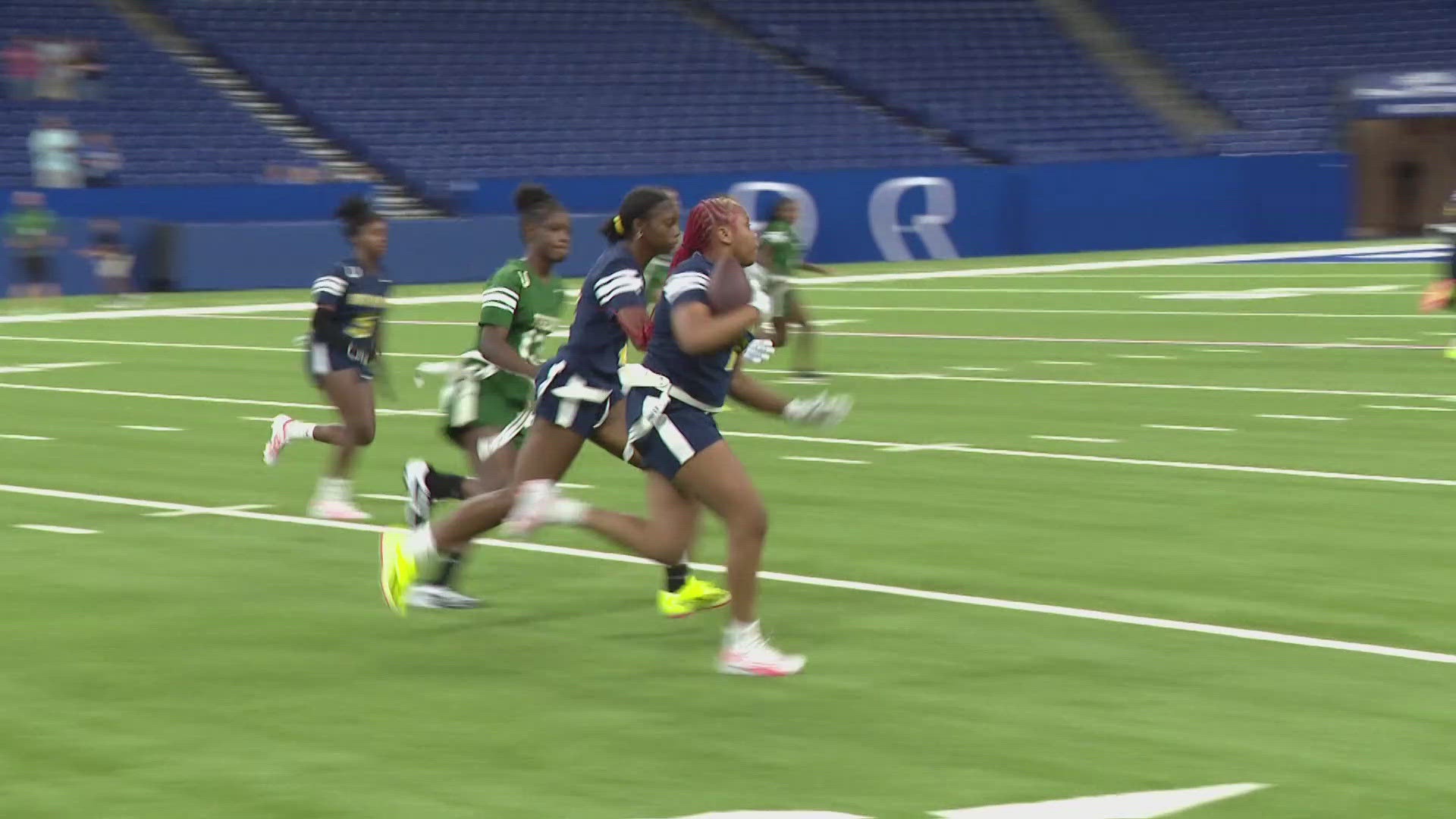POSEY COUNTY, Ind. — The Indiana State Board of Animal Health reported presumptive-positive bird flu cases from a small flock in southern Indiana.
On May 3, birds from a small flock on Posey County tested presumptive-positive for the H5 avian influenza virus at the Indiana Animal Disease Laboratory.
Officials are now forwarding the samples to the United States Department of Agriculture laboratory for confirmation, with the results expected in the next few days.
The incident was reported after what the Board of Animal Health described as a "significant death loss."
Officials said the flock is not engaged in commerce — selling birds or eggs — so the presumptive-positive case does not negatively impact Indiana's highly pathogenic avian influenza-free status on April 19.
The Board of Animal Health said there are no commercial poultry flocks within 10 kilometers of where the presumptive-positive cases happened.
Posey County is roughly 200 miles southwest of downtown Indianapolis.
Officials confirmed the first bird flu case in Indiana — and the nation — in February 2022 in a Dubois County turkey flock.
To date, Indiana has had 10 commercial poultry flocks (ducks and turkeys) and six small/hobby flocks (mixed species) test positive for bird flu.
Bird flu is spread to poultry by droppings from wild birds, especially geese and ducks, which makes it especially difficult to contain and control.
To mitigate the danger, experts say be careful not to track the pathogen onto your property and into the coop.
"Since it's from droppings, you could literally step in it somewhere else and walk it onto your property. That's one of the reasons we recommend you have a special set of shoes and just keep them right there and put them on before you go into the chicken yard or the barn area," said Denise Derrer-Spears, spokesperson with the Indiana State Board of Animal Health. "Have that special set of shoes or boots and clean and disinfect them."
Also, keep chickens away from retention ponds or streams, to limit contact with wild birds and call the vet if you notice any sign of sickness.



